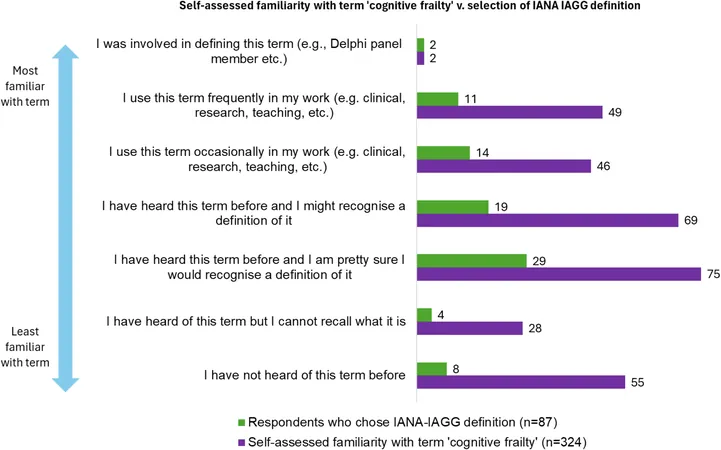
Cognitive Frailty: A Double-Edged Sword for Geriatricians?
2025-04-25
Author: Charlotte
Understanding the Concept of Cognitive Frailty
A recent survey sheds light on how geriatricians across Europe interpret the increasingly popular term 'cognitive frailty.' Introduced in 2013 by the International Academy on Nutrition and Aging and the International Association of Gerontology and Geriatrics, this concept combines physical frailty with mild cognitive impairment (MCI). But is the definition clear enough for widespread acceptance?
The Survey Breakdown: Key Findings
Conducted via an online questionnaire distributed to professional networks, this survey gathered responses from 440 geriatricians, with 324 addressing cognitive frailty specifically. The results are illuminating: only 25% of respondents accurately identified cognitive frailty as defined by the IANA and IAGG. Alarmingly, nearly two-thirds of those using the term in their practice did not stick to this official definition.
Divergent Views on Definition Sufficiency
After presenting the IANA-IAGG definition, only 44% responded positively, highlighting a clear divide. Importantly, many voiced that the definition was either too narrow—ignoring conditions like delirium and dementia—or too broad, including aspects they felt didn't belong.
Why the Confusion?
The survey unveiled a shocking lack of consensus. Geriatricians expressed various perspectives, underscoring the complexity of cognitive frailty. Previous studies have pointed to the intertwined nature of physical and cognitive decline; however, the clinical application of 'cognitive frailty' and its associated terms remains muddled.
Looking Ahead: Need for Clarity and Consensus
With cognitive frailty becoming a focal point in geriatric care, the survey's findings suggest an urgent need for discussion among professionals. A unified definition could foster better communication and ultimately enhance patient care. Researchers call for ongoing studies to confirm whether this concept genuinely improves care for older adults or merely complicates the landscape of geriatric medicine.
A Complex Relationship: Cognitive Decline and Physical Frailty
Research increasingly indicates that cognitive impairment and physical frailty share a symbiotic relationship—each can exacerbate the other. Yet, clear definitions remain elusive, sparking debates over whether these two phenomena should be treated as a single entity or distinct issues.









 Brasil (PT)
Brasil (PT)
 Canada (EN)
Canada (EN)
 Chile (ES)
Chile (ES)
 Česko (CS)
Česko (CS)
 대한민국 (KO)
대한민국 (KO)
 España (ES)
España (ES)
 France (FR)
France (FR)
 Hong Kong (EN)
Hong Kong (EN)
 Italia (IT)
Italia (IT)
 日本 (JA)
日本 (JA)
 Magyarország (HU)
Magyarország (HU)
 Norge (NO)
Norge (NO)
 Polska (PL)
Polska (PL)
 Schweiz (DE)
Schweiz (DE)
 Singapore (EN)
Singapore (EN)
 Sverige (SV)
Sverige (SV)
 Suomi (FI)
Suomi (FI)
 Türkiye (TR)
Türkiye (TR)
 الإمارات العربية المتحدة (AR)
الإمارات العربية المتحدة (AR)